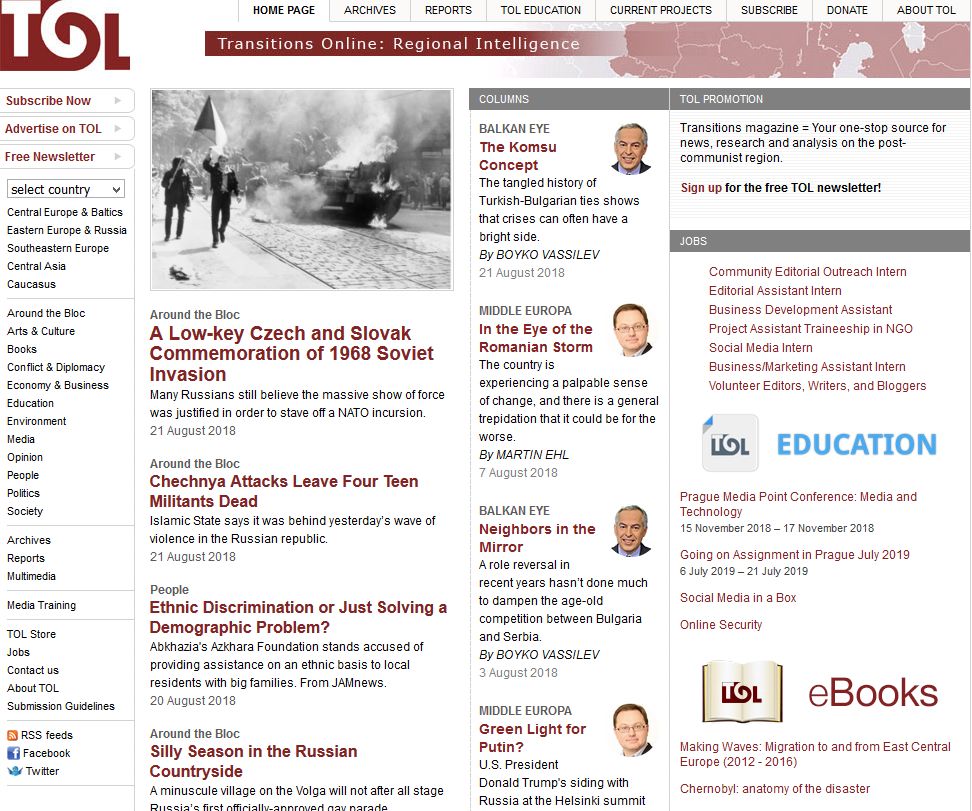
Transitions Online_Around the Bloc-Azeri Opposition Leader Mammadov Set Free
The release is prompting both relief and calls for continued pressure on the government to stop persecuting its critics.
More...We kindly inform you that, as long as the subject affiliation of our 300.000+ articles is in progress, you might get unsufficient or no results on your third level or second level search. In this case, please broaden your search criteria.

The release is prompting both relief and calls for continued pressure on the government to stop persecuting its critics.
More...
“Jokes on the internet are not extremism,” says Russian human rights council chairman.
More...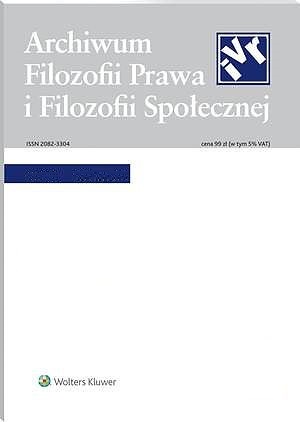
This paper concerns similarity of interpretation of law and interpretation of the Bible. It focuses on the same mechanisms grounding both the principles of interpretation of law and interpretation of the Bible. First, similar textual principles of interpretation are briefly described. Second, extra-textual principles of interpretation are given. In the second part some shortcomings of legal extra-textual principles of interpretation are also indicated. At the end of the text, a theory that allows to disregard these shortcomings is proposed.
More...
Judicial resolution, which was considered as the only possible form of dispute resolution, in some cases, has given way to some other legal rules for resolving conflicts. One of these is the mediation, an extra judicial activity where the parties try to find a resolution of a dispute through a neutral third person (the mediator) to find a mutually acceptable not contrary to the law. Mediation has always been present in the Albanian society as customary law, religious or positive one, where we find models / examples of many traditional enforcement methods of mediating. The alternative of the mediation still presents interest nowadays in family, civil, commercial and criminal conflicts. A special role in this institute plays the third-mediator; the person elected has the obligation to provide to the parties a transparent mechanism, faster and less costly to resolve disputes between them. The main role of an impartial mediator is to encourage the parties to a constructive discussion on the various components of the dispute, creating optimal conditions for handling and resolving the conflict. The results in these years, although not very satisfactory, however, show an increasing process and a further consolidation of the Institute. The aim of this paper is the study of the role, the function and the methodology of the mediator, the evolution of this institute in our country, as well as the treatment of the third neutral party in resolving conflicts with new and modern methods. On the other hand, this paper seeks to bring attention to a new and modern alternative of employment, because in the role of intermediaries may find themselves even young people who have completed programs of the first cycle, after having reached the age of 25 years, as an opportunity to exercise a free profession: mediator.
More...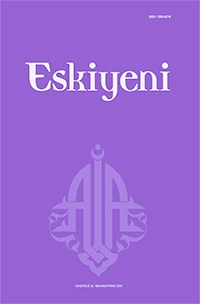
This article will try to develop a critical view on the relation of Law and justice. Differences emerging from this differentiation will be based on the concepts of law of justice and justice of law. The emphasis will be on the reality and value of justice in terms of law and moral philosophy. Law, Religion and Ethics are trying to acquire the power of justice in order to strength their power This article will emphasize the independence of justice and its autonomy.
More...
This study examines the relationship between social goodwill and real justice. The object of this goodwill is firstly the society and then the state. Society and the state are two essential facts and concepts that necessarily contain each other. In modern Islamic societies, it is felt a lack of the situation which the object of goodwill is correctly selected. This fact makes it difficult for the Middle East to establish the justice which has temporal and material conditions. Because the justice is a social order which contain norm and validity. In this context, it is confirmed that the term of “Circle of Justice” in Ottoman Empire and contemporary theories of which contain the social justice theory originated from Continental Europe and the liberal philosophical justice theory originated from United States of America are co-functional. Within this scope, the philosophers who studied about the circle of justice and some contemporary philosophers of politics such as Hannah Arendt and Jurgen Habermas and John Rawls and Bernard Williams and Ronald Dworkin have expressed the same social truth. Without the idea of an order, it is impossible to gain the real justice. Those who have been living in the Middle East seem to be distant from this social truth because of the process of the glocalization.
More...
This study tries to give a general framework about justice. For this aim, it discusses the etimological dimensions of the word of adalet, justice; and it is attempted to confirm the various senses of this word by referring some relevant verses in Quran. Following that, the concept is discussed in details in the relationship between Ethics and Law. In the second part of the article, it is referred to the unity of reason and heart in Quran, mentioning a justice in the Islamic sense. It takes some relevant verses contain particular judgements about justice to reach the objectivizations of it. It is concluded that justice is one of the most important parts of Islam and the consciousness, adding it is an eternal and ideal value.
More...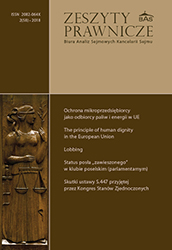
This article presentsthe normative status of the principle of human dignity in the law of the European Union.The issue is portrayed with reference to primary and secondary legislation of the EU. Thefirst field of analysis was the Treaties and the Charter of Fundamental Rights as primarysources of EU law. The examination of secondary law in the form of regulations, directivesas well as soft law used to implement the policies regarding the area of freedom, securityand justice was the subsequent stage. Having explored this, it was possible to formulatethe thesis of this paper. It is believed that human dignity – as a principle of EU law – is a le‑gally binding rule not only for the Member States but also for the third countries applyingfor EU membership. Human dignity is also one of the indivisible and universal values onwhich the European Union is founded.
More...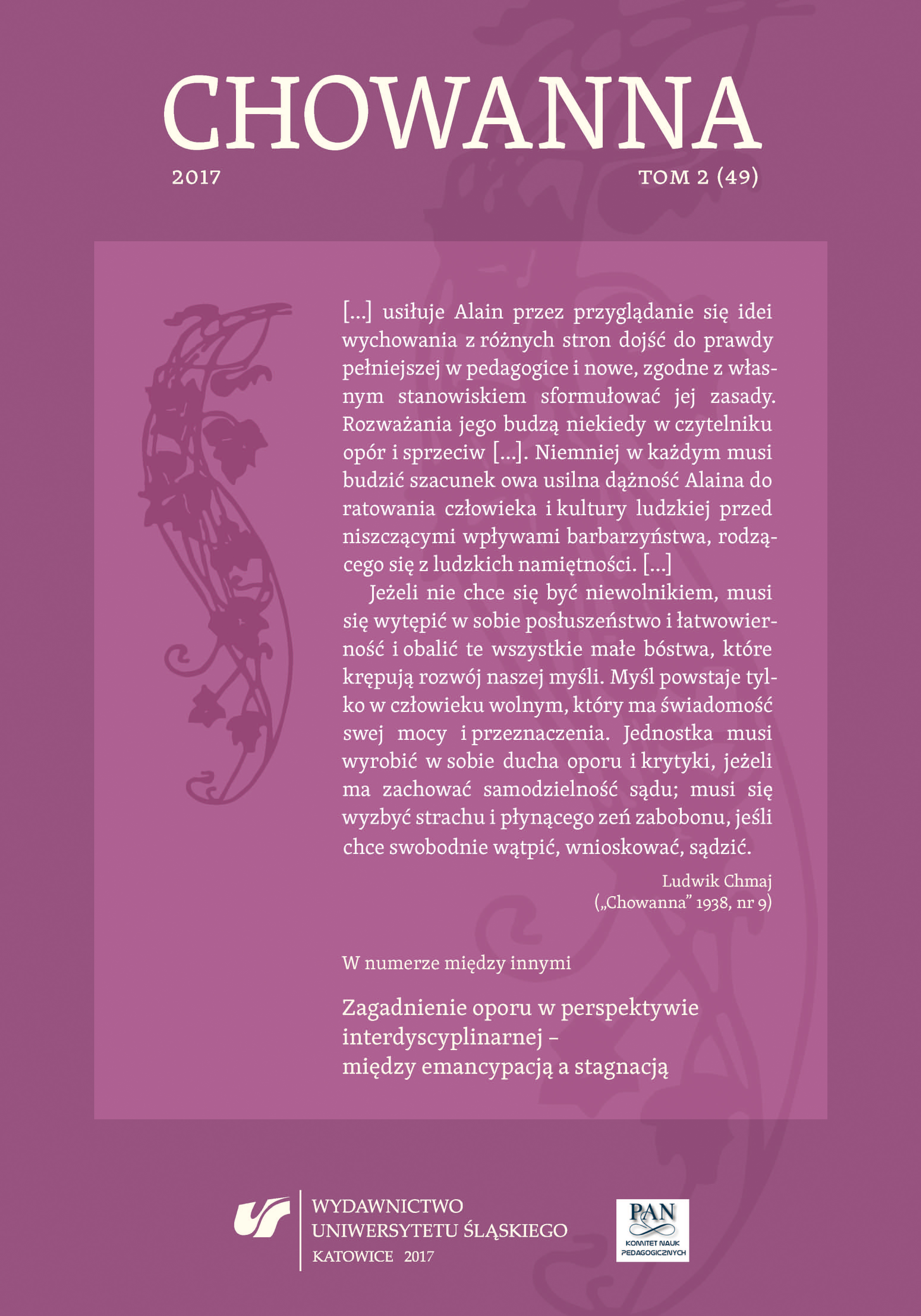
The presented article raises the issues of social participation and the child citizenship, discussed against the backdrop of historical shifts, with the intention to show possibilities within this scope. Additionally, the author purports to clarify the basis for misinterpretation and wrongful implementation of children’s social participation. Moreover, the article aims at showing the value of children’s social participation for the advancement of civil society? as well as citizens’ engagement through developing adult–child cooperation at a personal, organizational or institutional level, on the local, national and international scale.
More...
The article examines social control and the legal system as one of its tools. A survey was conducted among pedagogy students; the subject of the survey was the students’ attitude to the law and its effectiveness as well as evaluation of selected social control institutions. The views presented by the students are diverse; the respondents believe that the law has a regulative and protective function, both in society and in their lives. In their opinion, the prosecutors and courts are the most effective, while they deem the municipal police as the least effective. The proper functioning of formal social control institutions (legal and law enforcement authorities) is determined by their staff competence, good organization of work, and actions in compliance with the law. According to the respondents, informal social control determines the behaviour of an individual significantly, since this type of social control acts promptly and has positive and negative sanctions at its disposal.
More...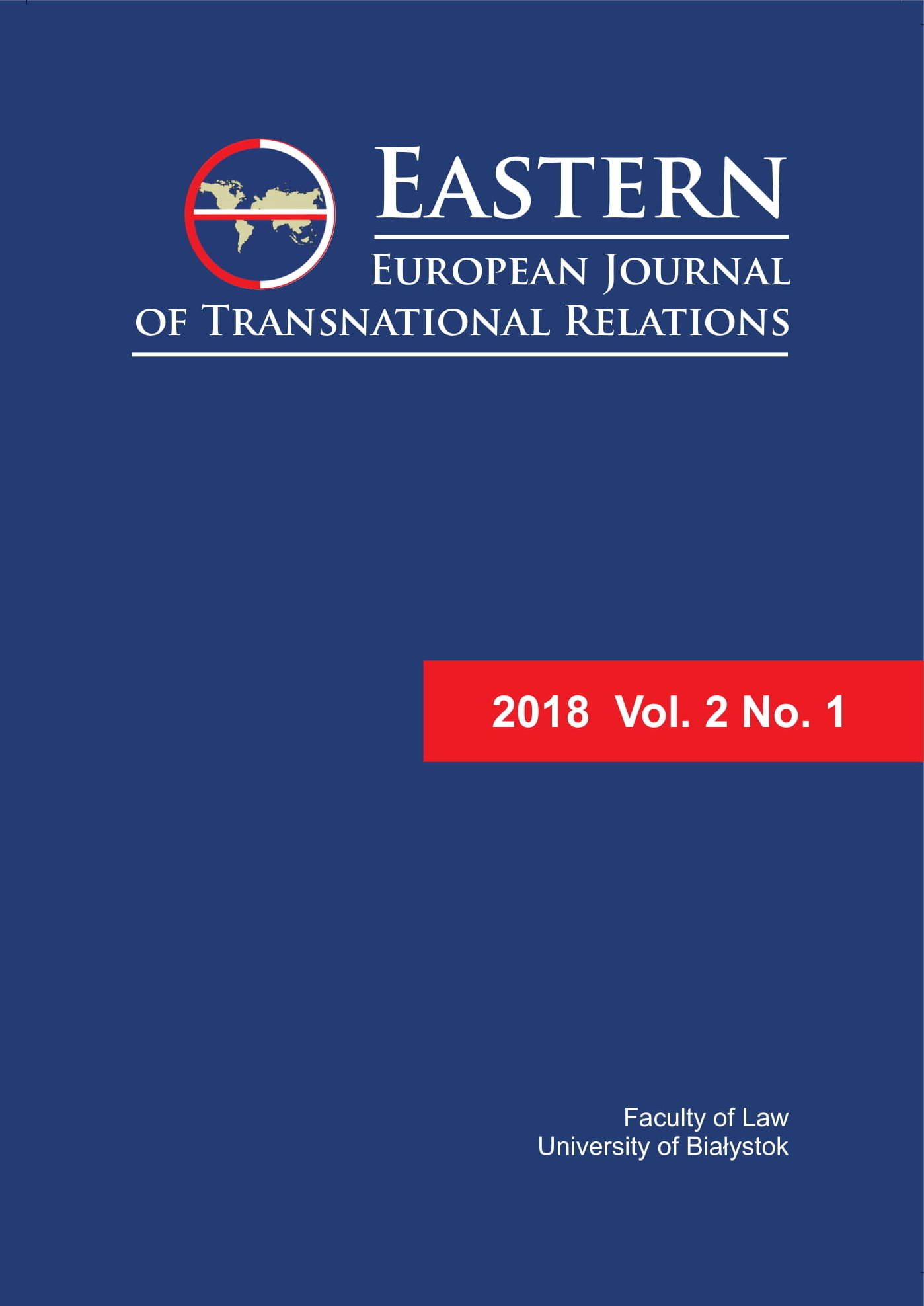
This public policy essay discusses the various criminological facets of the Golden Rule in the context of urban stewardship – the concept which emphasizes the role of the protection of the environment as a part of people’s natural habitat. Among these facets the right to safety in the Global North cities experiencing the influx of refugees and other migrants from the Global South deserves critical attention. It invites the question how to operationalize that right to the mutual advantage of such newcomers and native residents. In a broader socio-economic context of reducing inequalities promoted by the 2016-2030 United Nations Sustainable Development Agenda, the findings which suggest that both groups of residents appreciate a clean and safe habitat, and, finally, against the background of terrorist attacks in the Global North cities, the author of the essay advances the thesis that urban stewardship programmes/projects embracing concerned residents may be helpful to strengthen the feeling of safety in the citi
More...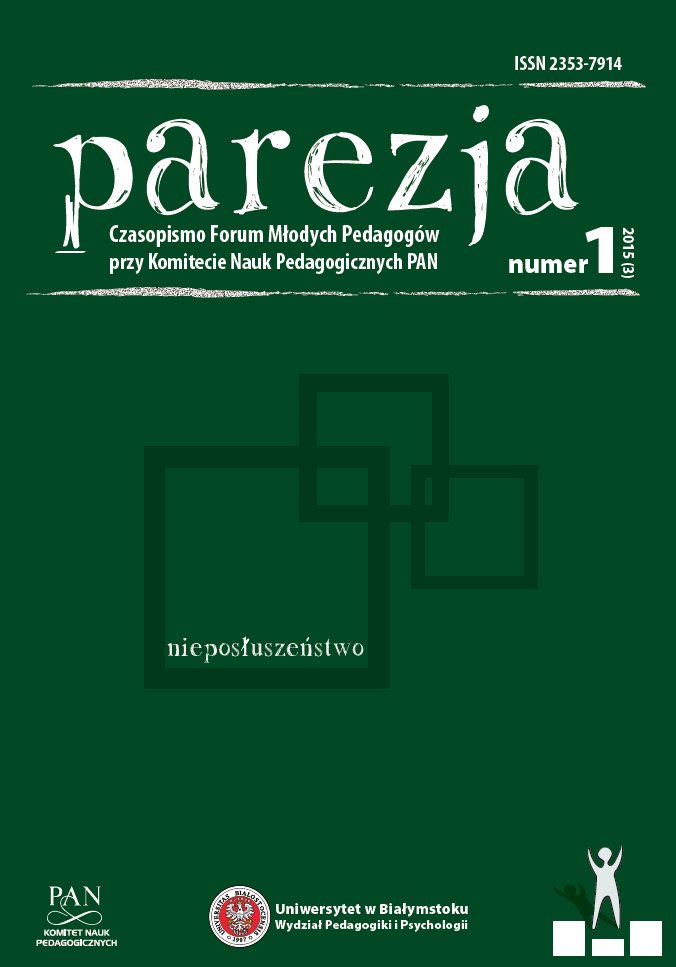
The main purpose of the paper is to present substantive and methodical assumptions of the public task, which is implemented under the government programme “Safe and friendly school 2014-2016”. The author, who is a creator and coordinator of the task, presents the description of the needs indicating the validity of undertaken initiative, the description of the target groups and characteristics of individual actions, aspiring to increase the effectiveness of educational and safety prevention and to create a safe and friendly environment in schools and other educational institutions.
More...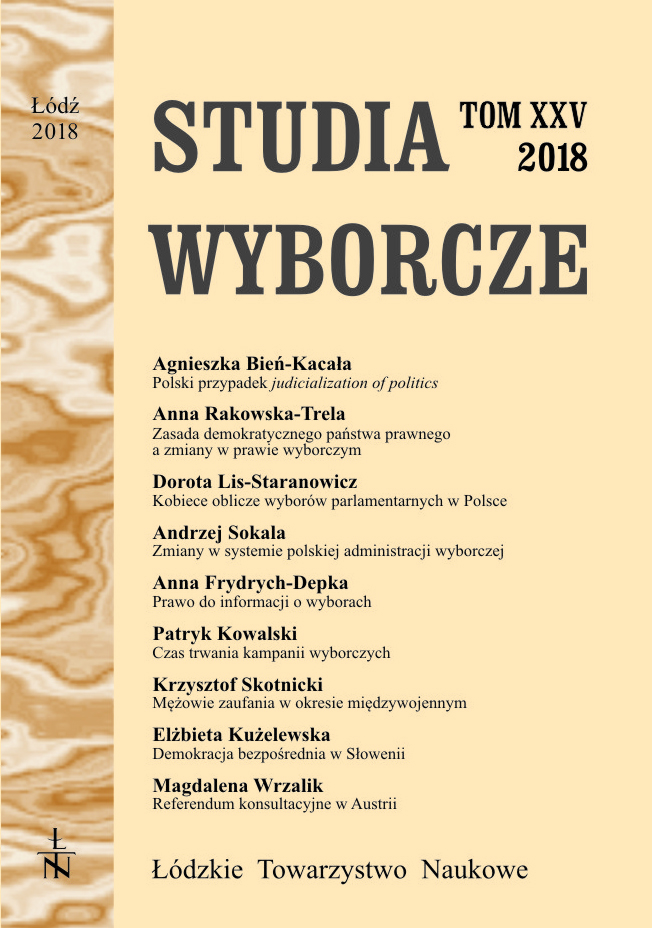
The article has a review character because it contains a summary list of womenʼs resultsachieved in the Sejm and Senate elections during the period of 1919–2015. Its aim is to recallwomen’s efforts to grant them electoral rights, the profiles of the first Polish parliamentariansand the way to increase the participation of female citizens in the exercise of power. The articlealso refers to the effects of the election quotas introduced by the Electoral Code. It also presentsthe results of the elections to the Sejm in 2015 in comparison to other countries, which togetherwith Poland entered the path of political transformation.
More...
Many important changes in the Polish electoral code were introduced by the Act of lawpassed on the 11th January 2018. Author analyses and evaluates these of them which concernthe status and functioning of the electoral administration, paying attention to the threats that theypose to the assessement of the elections in Poland as democratic ones.
More...
Public opinion surveys and the number of invalid votes cast, especially in local governmentelections, show that Poles have little knowledge of electoral law. This is by all means an undesirablephenomenon. Information about the election seems to be a necessary element to make an informedelectoral decision. What is information about the election? The answer to this questionderives not only from specific provisions of the Electoral Code. These issue should be consideredmore widely. Undoubtedly, with taking into consideration the general regulation on the accessto public information, as well as the provisions of international law or the interpretationof the basic rules governing elections.
More...
The aim of this paper is the analysis of election campaigns periods according to Polish legalsystem. The main consideration is limited to the problems mentioned below. First part dealswith the election campaigns periods in Poland in theoretical and legal aspects. I analyzed selectedlegal provisions which describe beginning, ending and the length of elections campaigns.Secondly, I examined the election campaigns periods in Poland in practical aspect. Theoreticalknowledge which I acquired allowed me to specify for instance the minimum and the maximumperiods of election campaigns and to calculate their average length. The last amendmentof the Polish Election Code of January 2018 is also considered.
More...
The aim of the article is to present the genesis and evolution of the institution of the pollwatcher in the Polish electoral law of the interwar period. Its creation resulted from the factthat in the electoral commissions there were representatives of government and self-governmentadministration along with the judges, while there were no representatives of voters or entitiesreporting the lists of candidates. The poll watcher represented those who put forward candidates.Their task was to observe the course of voting and counting votes. Their submission wasthe right of the entity submitting the list of candidates, but it was not an obligation. The regulationsregulating their operation were very laconic, which made their work difficult. However,they could always comment on the minutes of the electoral commission regarding the resultsof voting and elections.
More...
Slovenia is one of those countries in Central and Eastern Europe, where referenda are oftenconducted at national level. Between 1996–2016 16 legislative referenda were held, and 22 subjectsof the vote were decided by people in referenda. This was a significant number of referendathat both the Government and the State Assembly tried to limit the number of referendumsdue to concerns about the possibility of paralyzing the legislative process. The article is a legalanalysis of direct democracy institutions in Slovenian legal system. The paper discusses the roleof the referendum in the political system of Slovenia and explores the consequences of the constitutionalamendment in 2013, which directly relates to limiting the range of entities authorizedto initiate a referendum.
More...
The principle of democracy derived from the principle of sovereignty (supremacy) of the nationis the guiding principle constitutional system in the Republic of Austria. Nevertheless,the Constitution of the Republic of Austria expressis verbis does not provide for two possibilitiesof exercising power by the Nation – either by representatives or directly, in particular there is noconstitutional provision that directly declares that the sovereign may exercise power directly.The aim of the article is to present the instruments of direct democracy in the Republic of Austria,with special attention to the “youngest” institution introduced in 1989. Volksbefragung – a consultativereferendum, which is treated only briefly in studies on the institution of direct democracy.In order to provide a more complete picture of the functioning of direct democracy in thiscountry, as well as attempts to resolve the dispute regarding the legal character of the Volksbefragung institution (referendum or public consultation), one more brief form of direct democracyin Germany is Volksabstimmung, which is also regulated by the Constitution and by statutein the union law and is somewhat complementary to the institution in question.
More...